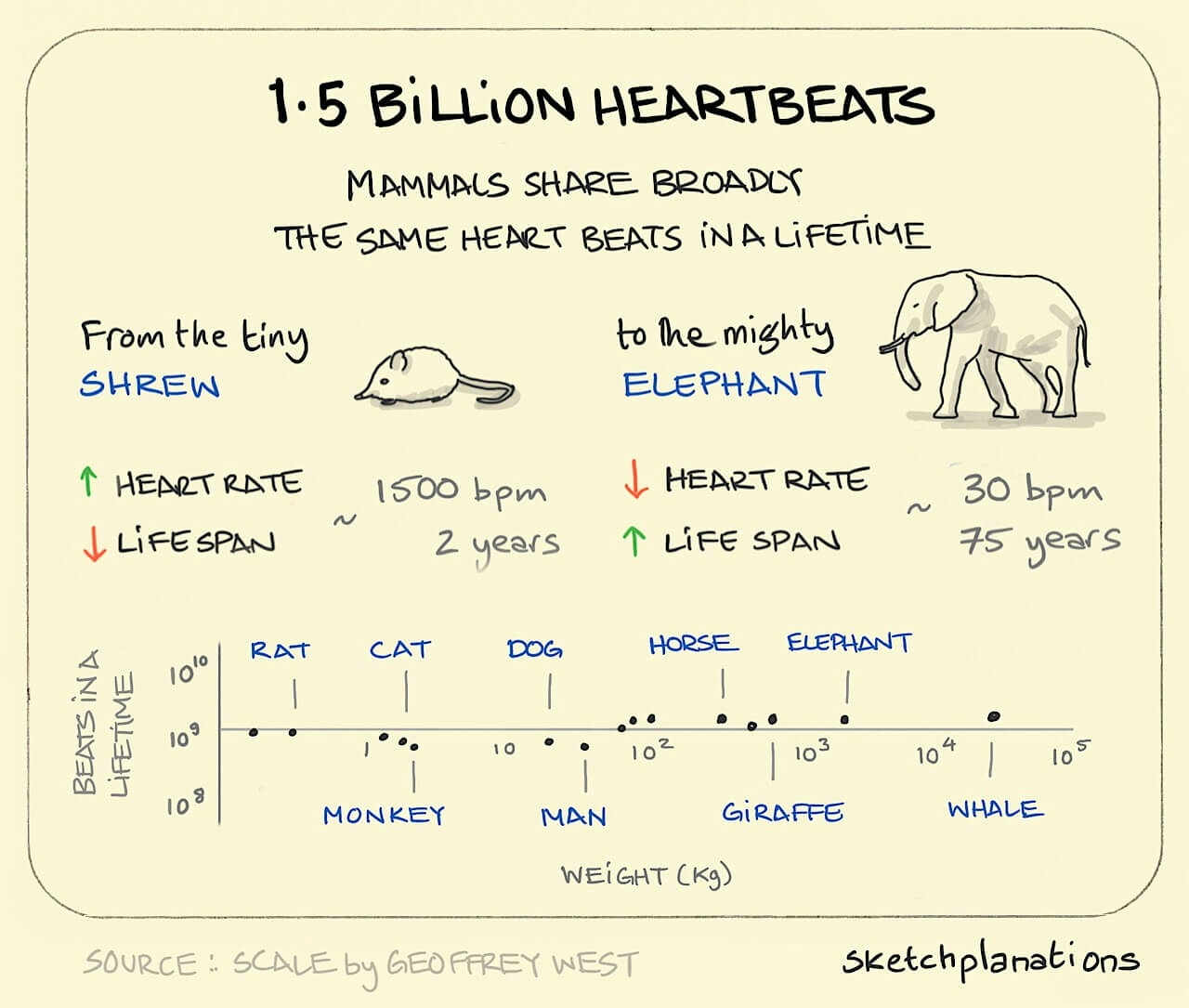1.5 billion heartbeats in a lifetime

👇 Get new sketches each week
For almost all mammals, 1.5 billion heartbeats, more or less, is how much you’ve got. From the teeniest, tiniest shrew weighing just a few grams to the largest whale — passing through animals as diverse as robins, monkeys, sea lions, and giraffes — each mammal has broadly in the region of 1.5 billion heartbeats.
Beyond just heart rate, knowing a mammal’s weight can help predict several other fundamental aspects of its life. A tiny mammal will likely have a heart that goes like crazy, live only briefly, and reach maturity quickly. A large animal, in contrast, will have a slow heart rate, a long life, and take its time to adulthood.
The most significant outlier is us, mainly because, in recent years, we’ve significantly extended our lifetime from what would be expected from Nature.
This gem, and many other fascinating insights about size, scale, Nature and physics, from the book Scale by Geoffrey West .
Also see: The square-cube law

